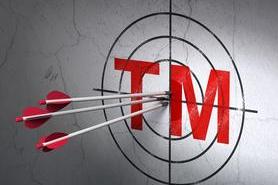10 myths of trade mark law unlocked
Can you register common English words as trade marks? Are ® and ™ symbols the same? We asked a Chartered Trade Mark Attorney to unlock some common myths of trade mark law.

Lee Curtis, a Chartered Trade Mark Attorney at HGF, has shared his answers to some common myths about trade mark law that are essential for business owners to be aware of.

1. The ® and ™ symbols mean the same thing
The ™ symbol has no legal significance in the United Kingdom. The ® symbol by contrast denotes that a trade mark is a registered trade mark and if you use of the ® symbol in relation to a trade mark which is not registered it is a criminal offence.
2. Filing trade mark applications yourself is easy
Although one can file a trade mark application yourself, they can be easy to get wrong.
A Chartered Trade Mark Attorney can provide you advice on what trade marks to register, where and for what goods and services and can advise on potential hurdles both with regards prior rights and distinctiveness issues saving you potentially thousands of pounds in the long run and securing the rights to your brand.

3. You cannot register common English words as trade marks
Common English words can be registered as a trade marks providing they are inherently distinctive for the goods and services covered or have been used on such a scale that they have become distinctive through use.
So, for example the word Apple for apples cannot be registered and protected, but the word Apple for computers can be registered and protected, as Apple means nothing for computers, but is descriptive of apples.
Whether a word can be registered as a trade mark depends on the goods and services for which registration is sought.
4. You should aim to make your trade mark part of the English language
Trade marks are only protectable if they distinguish the goods and services of one undertaking from those of other undertakings.
If a trade mark becomes part of the English language to describe a certain product or service, in a descriptive sense as opposed a branding sense, then it has become generic and will be free for all traders to use.
You should always clearly identify your trade mark as a trade mark and not use the trade mark to describe a product or service category.
Over the years some terms which were originally trade marks have become descriptive terms for the product category concerned. Escalator is a perfect example that has become generic, so can no longer be protected as a registered trade mark.

5. A trade mark registration prevents people talking about a trade mark or brand
A trade mark registration generally only prevents the use of a sign or similar sign in the course of trade in relation to the goods and services registered or similar goods and services.
It does not prevent the use of words or similar words in general conversation or monopolises a word of the English language. It also does not stop you referring to the registered owners' products, fairly.
Registered trade marks can be used to refer to the registered owner’s goods and services and can be used in descriptive reference to such goods and services.
6. The person or company who register its trade mark first gets the rights to it
In the United Kingdom at least you can oppose and indeed apply to cancel a trade mark registration based on use prior to a trade mark being registered.
Providing you have traded under your trade mark and such use is more than trivial and predates the first use or registration of the later trade mark, whatever is the earliest date, then you could succeed to opposing or cancelling the said application or registration.
However, never put off registering a trade mark as relying on rights built up before registration cannot be guaranteed.

7. Use of a trade mark on a website means it is being used across the world
In the United Kingdom at least you are only deemed to use a trade mark in a country where you actively trade or promote your business.
Therefore, just because you have a website which is accessible across the globe does not mean you are deemed to be using your trade mark in all countries of the world.
8. Only words can be registered as trade marks
Any sign can be registered a trade mark, a logo, a design, a sound, a shape or indeed even a gesture. At present, really the only thing which cannot be registered as a trade mark is a smell.
The only criteria to achieve registration is that the sign concerned distinguishes the goods and services of one undertaking from those of other undertakings, either inherently or via use.

9. A domain name registration gives you trade mark rights to that domain name
A domain name registration does not provide the owner with any trade mark rights. It simply protects the use of an address on the internet.
Trade mark rights which are only established in the United Kingdom via registering the name as a trade mark or using the trade mark and establishing goodwill in the business conducted under the trade mark.
10. A company name registration gives you trade mark rights to the company name concerned
A company name registration in the United Kingdom only prevents the registration of the identical or near identical name on the company register.
However, it gives you no trade mark rights which are only established in the United Kingdom via registering the name as a trade mark or using the trade mark and establishing goodwill in the business conducted under the trade mark.


